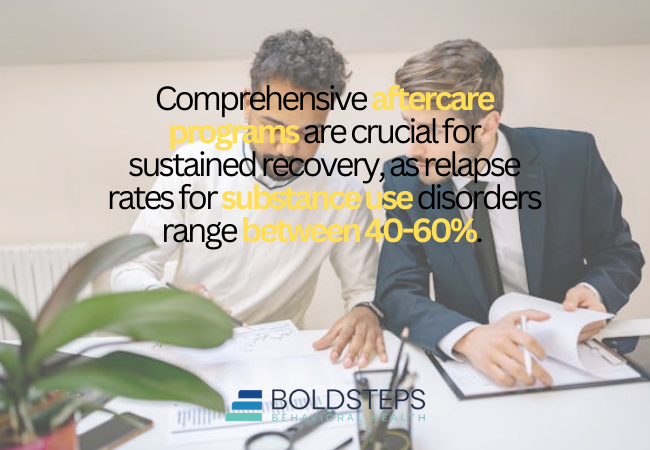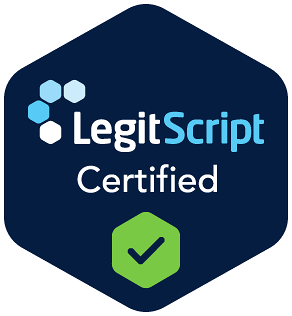Selecting the right drug rehabilitation center is one of the most important decisions in the recovery process. Each individual’s needs are unique, and finding a center that aligns with those needs can significantly impact the success of treatment.
Drug rehabilitation centers are specialized facilities designed to help individuals overcome substance use disorders and regain control of their lives. These centers offer a structured environment where patients can detoxify safely, receive therapy, and build the skills needed to maintain long-term sobriety.
The treatment process often includes medical care, counseling, and support for co-occurring mental health conditions, ensuring a comprehensive approach to recovery. Whether seeking help for opiate addiction, benzodiazepine dependency, or alcohol misuse, drug rehabilitation centers provide the tools and support necessary for sustainable healing. Choosing the right center is a critical decision that can significantly influence recovery outcomes. Below is a detailed guide to help you choose the best rehabilitation center for drugs or alcohol addiction.
Factors to Consider When Choosing a Rehab Center
1. Accreditation and Licensing
Ensuring that a drug and rehabilitation center is accredited and licensed is crucial. Accreditation guarantees that the facility adheres to industry standards, employs qualified staff, and uses evidence-based practices. Reputable organizations such as the Joint Commission or CARF provide certifications that validate a center’s quality of care.
When researching, check the facility’s licensing and staff credentials. Specialists in opiate addiction treatment, benzodiazepine treatment, and alcohol addiction treatment should have proper qualifications and experience.
2. Types of Programs Offered
The types of programs offered at a rehab facility can vary significantly. Consider the following:
- Detox and Rehab Centers: These centers offer medical supervision during the detox process to manage withdrawal symptoms safely. This is especially important for substances like alcohol, benzodiazepines, and opioids, which can have life-threatening withdrawal symptoms.
- Partial Hospitalization Programs (PHPs): A middle ground between inpatient and outpatient care, PHPs provide intensive treatment during the day while allowing patients to return home in the evenings.
- Intensive Outpatient Programs (IOPs): Designed for individuals who need flexibility, IOPs provide structured therapy while allowing patients to maintain work or family responsibilities.
- Outpatient Treatment: Typically for those with less severe addictions or as a follow-up to inpatient care, this program involves scheduled therapy sessions without a residential component.
Matching the program to the severity of the addiction and personal circumstances is critical for success.
3. Specialized Treatment Options
Not all rehab centers are equipped to treat every type of addiction. Look for a center that specializes in your specific needs, such as:
- Opiate Addiction Treatment: Includes medication-assisted treatments (MAT) like methadone or buprenorphine, combined with behavioral therapies.
- Benzodiazepine Treatment: Focuses on tapering strategies and cognitive-behavioral therapy (CBT) to manage anxiety and insomnia post-detox.
- Stimulants Treatment: Includes therapies targeting the psychological effects of stimulant use, such as cravings and mood disorders.
- Alcohol Addiction Treatment: Often involves a combination of detoxification, individual counseling, and group therapy at rehab alcohol centers.
Choosing a center that tailors its approach to your addiction ensures comprehensive and effective care.
4. Therapeutic Approaches and Methods
The foundation of any good rehabilitation program lies in its therapeutic approaches. The best rehab centers combine evidence-based treatments with holistic methods to address both physical and psychological aspects of addiction. Look for:
- Cognitive Behavioral Therapy (CBT): Helps patients identify and change negative thought patterns.
- Dialectical Behavioral Therapy (DBT): Focuses on emotional regulation and coping mechanisms, often used for co-occurring disorders.
- Group Therapy: Builds peer support networks and enhances communication skills.
- Family Therapy: Addresses family dynamics and promotes healing within the household.
- Holistic Treatments: Yoga, meditation, art therapy, and nutritional counseling can complement traditional methods and enhance overall well-being.
5. Aftercare and Long-Term Support
Recovery is a lifelong journey, and aftercare is critical to maintaining sobriety. The best drug abuse treatment centers provide robust aftercare plans, including:
- Continued therapy and counseling sessions
- Access to 12-step or alternative support groups
- Relapse prevention programs
- Alumni networks for ongoing community support
Centers with a strong emphasis on aftercare can significantly reduce the risk of relapse.
6. Cost and Insurance Coverage
The cost of treatment is often a significant factor in choosing a rehabilitation center for drugs or alcohol. Many centers accept insurance, which can help offset expenses. Contact your insurance provider to confirm what aspects of treatment are covered, such as partial hospitalization programs, intensive outpatient programs, or detox services.
For those without insurance, some detox and rehab centers offer sliding scale fees, payment plans, or financing options to make treatment more accessible.
7. Location and Environment
The location of a treatment facility can impact recovery. Some patients prefer a nearby center for family involvement, while others benefit from a distant facility to escape familiar triggers. Additionally, the environment of the center matters—peaceful, serene locations often provide a calming atmosphere that promotes healing.
8. Reputation and Success Rates
When choosing a drug and rehabilitation center, research its reputation. Look for:
- Testimonials and reviews from former patients
- Published success rates (though be cautious, as no center can guarantee recovery)
- Transparency in sharing outcomes and methods
Facilities with a strong reputation and proven track record are more likely to provide high-quality care.
9. Family Involvement
Addiction affects families as much as individuals. Many rehab centers involve families in the recovery process through family therapy or educational programs. This helps rebuild trust and creates a supportive environment for long-term success.
10. Customized Treatment Plans
Every patient is unique, and the best rehabilitation center for drugs provides personalized treatment plans. These plans consider:
- The type and severity of addiction
- Any co-occurring mental health disorders
- Personal goals and preferences
A tailored approach ensures that treatment meets the specific needs of the individual, improving the chances of successful recovery.

Role of Location and Environment
The location and environment of a rehabilitation center for drugs can play a pivotal role in the recovery process. A serene, peaceful setting can foster relaxation and reduce stress, creating an atmosphere conducive to healing. Many individuals find that being in a tranquil environment away from familiar triggers allows them to focus entirely on their recovery.
On the other hand, choosing a facility close to home can be beneficial for maintaining family involvement and accessing local support networks. Local rehab centers may also be more practical for ongoing outpatient programs or aftercare support. Weighing the pros and cons of proximity versus a fresh start in a new location is an essential step in selecting the best treatment option.
Family Involvement in Recovery
Addiction is a disease that affects not only the individual but also their loved ones. Family involvement in the recovery process can strengthen support systems and enhance the chances of long-term success. Many drug abuse treatment centers and rehab alcohol centers incorporate family therapy into their programs to help mend relationships and address the emotional impact of addiction.
Family members can play an active role by participating in counseling sessions, learning about addiction, and understanding how to provide constructive support. Educating families on healthy communication and boundary-setting is critical to creating a nurturing environment that encourages recovery. Their involvement fosters accountability, trust, and a sense of community, all of which are vital for sustained sobriety.
Common Challenges in Choosing a Rehab Center
Selecting the right drug and rehabilitation center can be daunting, as it involves navigating a range of options and considerations. Common challenges include:
- Stigma and Shame: The fear of judgment often prevents individuals or their families from seeking help. Breaking through this stigma is a vital first step in recovery.
- Financial Concerns: Treatment costs can be high, and understanding insurance coverage or payment plans can be overwhelming. Many detox and rehab centers offer financial assistance, making care more accessible.
- Overwhelming Choices: With so many rehab centers available, it can be difficult to determine which facility aligns best with individual needs. Researching reviews, success rates, and treatment methods is crucial.
- Misinformation: Not all facilities offer the same level of care. Ensure the center is accredited and employs evidence-based treatment approaches.
- Logistics: Balancing work, family, or other obligations while attending treatment can feel impossible. Programs like Partial Hospitalization Programs (PHPs) and Intensive Outpatient Programs (IOPs) provide flexible options to address these concerns.
Conclusion
Choosing the right drug rehabilitation center is a life-changing decision. Whether you’re seeking help for opiate addiction treatment, benzodiazepine treatment, or alcohol addiction treatment, the key is to find a center that aligns with your needs and values. Consider factors such as accreditation, program offerings, therapeutic approaches, aftercare, and cost to make an informed choice.
Remember, recovery is possible with the right support. Don’t hesitate to reach out to a trusted rehabilitation center for drugs, rehab alcohol centers, or detox and rehab centers to begin the journey to a healthier, sober life.
If you or a loved one is ready to take the first step, contact a professional rehab center today and take the path toward long-term healing and recovery. Reaching out to Bold Steps Behavioral Health today at (603) 915-4223 today.
Frequently Asked Questions (FAQs)
What is a drug rehabilitation center, and how does it help in recovery?
A drug rehabilitation center is a facility designed to help individuals recover from substance abuse and addiction. These centers provide detoxification, therapy, counseling, and aftercare support to promote long-term sobriety.
How do I choose the best rehab center for my needs?
To choose the best rehab center, consider factors such as accreditation, treatment programs offered, therapeutic approaches, aftercare services, cost, and location. It’s also essential to ensure the center specializes in treating your specific type of addiction, such as opiates, alcohol, or benzodiazepines.
What are the main types of treatment programs offered at rehab centers?
Common programs include:
- Detox and rehab centers for medical detoxification
- Partial Hospitalization Programs (PHPs)
- Intensive Outpatient Programs (IOPs)
- Outpatient treatment for flexible care
Do rehabilitation centers treat co-occurring mental health conditions?
Yes, many rehab centers offer dual diagnosis treatment for individuals with co-occurring substance use disorders and mental health conditions like anxiety, depression, or PTSD.
What is the difference between inpatient and outpatient treatment?
Inpatient treatment involves staying at the facility 24/7 for intensive care, while outpatient treatment allows individuals to live at home and attend scheduled therapy sessions.
How long does treatment at a drug rehabilitation center typically last?
Treatment duration varies depending on individual needs and the severity of addiction. Programs can range from 30 days to 90 days or longer for extended care.
Does insurance cover the cost of rehabilitation?
Many insurance plans cover some or all of the cost of rehab. Check with your insurance provider and the rehab center to understand your coverage options.
Can I receive treatment for multiple addictions at once?
Yes, most drug rehabilitation centers are equipped to handle multiple addictions, such as alcohol, opiates, and stimulants, through integrated treatment programs.


